- Home
- Rachel Caine
Working Stiff tr-1 Page 6
Working Stiff tr-1 Read online
Page 6
“The embalming?”
“Not the embalming.”
“I don’t understand.” She really didn’t, and her head hurt. Her mouth felt dry and tasted of metal, and she desperately craved a drink. “Could I have some water, please?”
“Not yet. I need you to tell me what you saw, Bryn.”
“I can’t.” She meant it. She was shaking all over, ice-cold at the thought of even trying to pull up those memories.
He studied her for a moment, then pushed back the chair, stood up, and walked over to murmur with Joe Fideli in the corner. It was a quiet, fierce argument, and finally Joe turned and left the room. He didn’t look happy.
The man in the suit looked at Bryn, and she felt vulnerable, fragile, and cold.
“I’m afraid I have to give you some very bad news,” the man said. “Please, I want you to stay calm.”
Bryn’s hands clenched into fists around the sheet that was draped over her body. “I’m calm.”
“You’ve suffered an attack,” he said. “Unfortunately, you didn’t survive.”
She blinked. What the hell had he just said? “Excuse me?”
“You’re dead, Bryn. You were suffocated with a plastic bag over your head.”
“I’m not dead.” But what he was saying made the darkness in her head ripple and threaten to tear and let those awful memories come out. “Obviously, I’m not dead; I’m talking to you. It’s not true.”
“I’m sorry, but I have no choice but to explain this to you. You’ve been treated with a proprietary drug, a drug that can bring a subject back from death for a limited period of time.”
“Limited,” she echoed faintly. “What do you mean, limited?”
“Without another injection, the nanites in your bloodstream will shut down in twenty-four hours. They’re all that’s keeping your body running, Bryn. They can repair damage and maintain your body at a certain level, but they don’t restore life permanently. It’s a facsimile of life, not sustainable on its own.” He clasped his hands behind his back and met her eyes steadily. “You’re a problem, Bryn. My problem. I made the call to bring you back, in the hope that you could give us some information about what was going on at the Fairview Mortuary, where they were obtaining the drugs stolen from our company.”
She didn’t understand. She didn’t want to understand. Her heart was pounding—if she were dead, her heart shouldn’t be beating, right? But she could feel it. She could feel everything. She was thirsty, for God’s sake.
She was alive.
“You brought me back,” she said. “From the dead.”
He said nothing.
“To ask me questions.”
“Questions you haven’t yet been able to answer,” he said. “Which is a problem for us both, you see. I made a substantial investment that isn’t paying off. As things go, I really don’t have any justification to give you a second shot. Unfortunately, that means you face a very difficult five or six days while the nanites completely shut down, and you … continue on the natural path of decay. We don’t really know if consciousness survives during that process, but I’m afraid it might, for a time. We’ll do everything we can to make you comfortable.”
It burst in on her with a blinding light: Mr. and Mrs. Jones. The drug. Mr. Fairview demanding all that money.
Mr. Garcia’s rotting corpse, moving weakly in its bag.
That’s going to be me.
“No!” she burst out. “No, you can’t do this to me! You son of a bitch, you can’t just let me rot!”
“Then tell me something that I can use to keep you alive,” he said, and for a second, his hard shell of reserve cracked. “Please Miss Davis. Tell me something I can use. Anything.”
She swallowed hard, squeezed her eyes shut, and then opened them. “Mr. Fairview was charging ten thousand dollars, and five hundred per shot. I saw him with someone named Mr. Jones. His wife needed the shot. And … he’d lost his job. He tried to grab the drugs, but Mr. Fairview shot him.” The world went too bright, and wobbly around the edges for a moment. She grabbed a deep breath to steady herself. “They put Mrs. Jones in a body bag. She was still alive. Still moving, anyway.”
There was a flash of horror across the man’s expression that made him seem, at least in that moment, human. “I’m sorry,” he said, “but that doesn’t help us. Did you hear Mr. Fairview say anything about where he was obtaining the drugs …?”
“No,” she said. “I don’t know anything about that.” And she realized, with a sinking sensation, that she’d just doomed herself. She had nothing left to tell him. Nothing he didn’t already know.
He seemed to know it, too. He looked at her for a long, silent moment, and then he turned and headed for the door.
“Wait,” she said. “At least tell me your name.”
She didn’t think he would. It was probably easier for him if he didn‘t. But he surprised her. “My name is Patrick McCallister,” he said. “I’m the chief of security for Pharmadene.”
“What’s Pharmadene?”
“The company that created Returné,” he said. “The drug that we gave you to bring you back.”
“You mean the drug that’s going to take five days to kill me again,” she said.
He unclipped his badge and swiped it through a strip reader next to the door. The door clicked open. “Unless I find a good reason to give you the next shot,” he said. “Yes.”
She watched the door slowly close, and then lowered her head to the clean, soft pillow.
I’m alive, she thought. Damn it, I’m alive.
For five more days, anyway.
Chapter 3
There was no way to tell time in the sterile little room Bryn was trapped inside. She wasn’t restrained, at least; that was something. There was a small, bland little toilet area off the main room, and she visited it regularly. Being almost alive came with toilet duties, apparently. She kept wondering whether they’d lied to her, if maybe there was nothing at all wrong with her; she didn’t feel different. She felt fine.
She was alive; screw what McCallister had said. This was all bullshit, and they were just trying to scare her. She’d blacked out when Freddy had been suffocating her with the bag; that was all—someone had gotten it off of her in time, and she’d been unconscious for a while, but she was okay now. Nothing weird about any of it.
In fact, she was no longer sure she’d even seen what she thought she had. Mrs. Jones had probably just been a junkie, sick with need. And the body in the bag … No, that had just been a decomposing murder victim, nothing special about it. It hadn’t moved. It hadn‘t.
It couldn‘t.
Bryn flexed her hand, staring down at it. Same smooth skin. Same fingernails, topped with the same chipped pearl-pink polish. Same flexors and extensors and muscles and bones. Same scar, there on the wrist, where she’d caught a piece of flying shrapnel from an IED. The only scar she’d brought back from the war.
Not dead.
There was a camera in the corner of the room, and Bryn stood and faced it, head raised. She felt cold, but defiant. “McCallister,” she said. “I’m not dead. I’m not. So you can stop all this crap; I’m not buying it, all right? Just let me go. I’ll sign whatever forms you want. Nondisclosure. Whatever.”
No answer. And the camera never blinked.
She found plain but serviceable clothing in the cabinet, neatly folded—they’d included a shirt, pants, socks, even underwear in her sizes. Bryn took everything into the bathroom to change, and as soon as the stiff, new fabrics slid over her skin, she felt better. More in control, even though she knew that was an illusion.
The room was small, and it got smaller the more she paced, arms folded, stopping to glare at the camera. She didn’t speak again. There didn’t seem to be any point.
Twenty-four hours, he’d said. It was all nonsense, but still, she couldn’t help but wonder how much time had passed. Hours. Was he going to just keep her here the whole time, with not even the courtesy of a meal
? Was this psychological warfare?
Well, she wasn’t worried. She could outlast some soft corporate drone, and if they wanted to do any serious psychological damage they should have left her naked, not given her perfectly fine new clothes and shoes. (The shoes were, she had to admit, actually nicer than what she’d been wearing with her suit. Although she missed the pink blouse.)
They’d taken her watch and, of course, her cell phone. Nothing to read, watch, fiddle with, or do. She methodically explored the cabinets and drawers, finding nothing that could help, and set the water dripping in a rhythm as close as she could get to one second per drop. She set the plastic cup under the tap and occupied herself marking off minutes, then five minutes, then ten, thirty, an hour.
Voilà. Instant water clock.
She was two hours into the exercise when she heard a harsh buzzing sound from the other room, and left the clock to see the door swinging inward. Rush him, some instinct said, so Bryn moved toward the exit, fast.
She skidded to a stop when Joe Fideli pointed a gun at her. He shrugged apologetically, but there was nothing but business in his blue eyes. “Sorry, Miss Davis,” he said.
“We’re back to Miss Davis, Joe?”
“Bryn. Sit down on the bed, please. No crazy stuff.”
She backed up and sat, well aware of the disadvantage at which he’d placed her. The hospital bed was high, and her feet dangled off the ground. No leverage for any sudden moves.
Bryn folded her hands and tried to seem as inoffensive as possible. He’d already mentioned how young she looked; that was an asset in a situation like this. One she hated to use, but still, she wasn’t exactly awash in options here.
Joe settled comfortably against the wall, still holding the gun steady on her. “Pat,” he said, “we’re good here.”
It bothered her how careful they were, because even then, Patrick McCallister surveyed the whole room before entering. Like Fideli, she was sure he’d had some kind of military-style training. Mercenary, if not traditional. He was way too good at checking corners.
He also secured the door, closing off her line of escape, before dragging over a chair and sitting down across from her. He did not, Bryn noted, block Fideli’s line of fire.
Close up, without the adrenaline and fear to blur her focus, she was able to spot some interesting things about Mr. McCallister. First, the suit he was wearing wasn’t just any off-the-rack thing; it was tailored, and silk, and every bit as nice as what the late Mr. Lincoln Fairview had worn to work. McCallister looked tired, as if he’d missed a night’s sleep, but he was handsomer than she remembered. She’d missed how warm his dark eyes seemed, for one thing.
“Miss Davis,” he said. “How do you feel?”
“Not like I’m dead.”
“You think I’m lying to you.”
“Obviously. You have to be.”
He shook his head slowly, and leaned back in the hard-backed aluminum chair. “Joe,” he said, “show her the video.”
There was a flat-panel TV set flush into the wall, and well out of Bryn’s reach; Fideli pulled a remote control out of his pocket and punched some buttons. Cue music and intro titles, and a logo that resolved into the words Pharmadene Pharmaceuticals. It all looked very polished and corporate. High production values.
But what followed was cold and clinical. There was a corpse lying on a morgue table, clearly and obviously dead; the skin was chilly blue, and still smoking a little from being removed from the refrigerator. The eyes were closed. It was a man, nothing special about him except that he was dead, probably from the two black-edged bullet holes in his chest.
Enter a medical team, hooking him up to monitors that read exactly nothing. No heartbeat, no respiration, nothing.
And then the injection.
It took long minutes, but then Bryn saw a convulsive shudder rip through the body, saw the ice blue eyelids quiver, saw the mouth gape open, and heard …
Heard the scream.
She knew that scream. She’d felt it rip out of her own mouth, an uncontrollable torrent of sound and agony and horror and fear. It was the lost wail of a newborn, only in an adult’s voice.
The corpse’s filmed eyes opened, blinked, and the film began to slowly fade. The skin slowly shifted colors from that unmistakable ashy tone to something less … dead.
And the bullet holes began to knit closed—but not before bright red blood trickled out and began running down the heaving, breathing chest.
The monitors kick-started into beeps. Heart rate. Oxygen saturation. Blood pressure.
Life.
He stopped screaming and looked at the doctors. His voice, when it came, sounded hoarse and dry. “Did it work?”
Nobody answered him. They were all busily noting details, murmuring instructions, taking samples.
It was like the living man, where the corpse had been, didn’t exist at all except as a clinical miracle.
Bryn felt a horrible chill inside, but she put on a brave face. “Nice special effects. Really nice—”
She would have gone on, but another video started, brutally fast.
That was her. Ash gray, lying dead in a hospital bed. Her eyes were swollen and bloodshot and blank, pupils completely blown. She’d bitten her lip, and blood had dried on her face. Her head lolled limp on the pillow. They cut away her clothing, reducing her to just another shell, another dead thing, pitiful and cold and naked, and Bryn couldn’t move, couldn’t do anything, not even demand for them to stop the video.
Fideli wasn’t watching it. He and McCallister were watching her. She was peripherally aware of that, but she couldn’t tear her horrified gaze away.
“Right, give her the full dose,” said the crisp voice of a doctor in the video. “Start the clock … now.”
It took long, torturous minutes, and then … then … Bryn’s body stirred. Gasped. Spasmed.
But there was nothing else.
“Vital reactions,” the doctor said. “Note the time in the log, please.”
A nurse spread a sheet over her naked body. They seemed to be waiting for something, and Bryn realized that the video-Bryn hadn’t opened her eyes, or taken another breath after that first, convulsive one.
The doctor glanced up at a clock on the wall. “She’s not responding. I’m going to have to call it.”
“Wait.” In the video, Joe Fideli moved out of the shadows and put his hand on her face. “Come back,” he said. “C’mon, Bryn, don’t do this. Come on back. Come back.”
He slapped her, a stinging blow, and Bryn saw her blank eyes finally blink, slowly.
And then she screamed.
The same scream.
Fideli held her hand through the rest of it. Bryn didn’t listen, couldn’t over the rush of blood in her ears. She felt dizzy and sick and very, very strange.
She looked at Fideli, who shifted his gaze away. Then she moved her mute stare to McCallister, the cool corporate drone, who leaned forward and took her hand in his. Squeezed, silently, and waited until the video finally ended.
Fideli shut the TV off. In the silence, Bryn heard some rational voice in her head screaming, It’s fake; it’s all fake, special effects. This isn’t happening; this can’t be happening.
The only problem was that she knew it was happening. She’d seen, and she finally, horribly, believed.
She looked up at Patrick McCallister’s face and saw emotion there, quickly hidden. Pity, maybe.
He was still holding her hand. He’d been holding it through the whole ordeal, though she’d forgotten he was even there.
“Joe,” he said, “I don’t think we need the gun anymore.”
Fideli put it away without a word. Bryn realized that she really ought to say something, do something, but for the moment, all she could think of was to sit very still, holding to the warm anchor of another human being. She felt like all the world around her had turned into a black, sucking whirlpool, and she was afraid that if she let go, even for a second, she’d drown.
Oh, she believed, all right. And it terrified her.
“What did you do to me?” she whispered. She was staring right into McCallister’s eyes now, looking for that spark of connection again, but it wasn’t there. He’d shut down. Maybe he had to, to deal with the emotion pouring out of her just now. She’d never felt so scared, or so alone. So empty.
“There’s good news,” he said, in a soothing, quiet voice that unpleasantly reminded her of Lincoln Fairview, with his nice suit and cultured palate and nasty lies. “You need a daily shot, but apart from that one thing, you’re in the best shape you’ll ever be in. No sickness, no aging. You won’t change, because the nanites returned you to a template of what you were just at the cessation of life, and holds you there.”
“I’m dying. I’m dead.”
“You’re dying less than the rest of us,” he said. “You’re … on hold would be a good description. And there are positives, believe me.”
“Positives!” She couldn’t control the bitter, shaky laugh that burst out of her, and put her hand to her mouth to muffle it. “God.”
He didn’t tell her it was okay after that. He just let her sit and think for a while.
Finally, she wet her lips and said, “How in the hell does a company set out to create … this?”
“They didn’t,” he said. “Returné was an accident, a side effect of an experimental drug for the treatment of cancer. It would have won Mercer and Sams the Nobel Prize, if it had worked the way they thought. Or if they could ever actually talk about it again, but of course now it’s highly classified.”
That made her laugh again, but it wasn’t a laugh she recognized. It sounded wild and ugly, and very not-Bryn. Of course, she wasn’t Bryn anymore, was she? The Bryn from yesterday, that girl had her whole life ahead of her. A career, love, a family—those were the things she’d wanted. And she was gone.

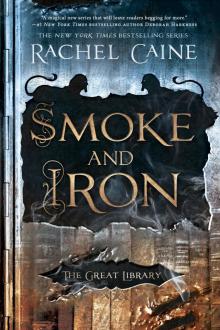 Smoke and Iron
Smoke and Iron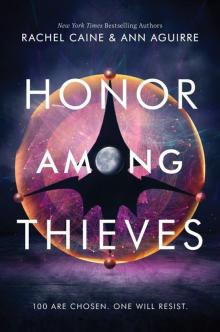 Honor Among Thieves
Honor Among Thieves Paper and Fire
Paper and Fire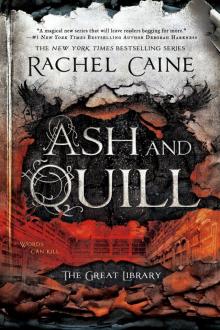 Ash and Quill
Ash and Quill Wolfhunter River (Stillhouse Lake Book 3)
Wolfhunter River (Stillhouse Lake Book 3) Undone
Undone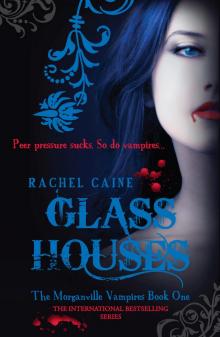 Glass Houses
Glass Houses Prince of Shadows
Prince of Shadows Unseen
Unseen Midnight at Mart's
Midnight at Mart's The Dead Girls Dance
The Dead Girls Dance Last Breath
Last Breath Stillhouse Lake
Stillhouse Lake Daylighters
Daylighters Midnight Alley
Midnight Alley Black Dawn
Black Dawn Fall of Night
Fall of Night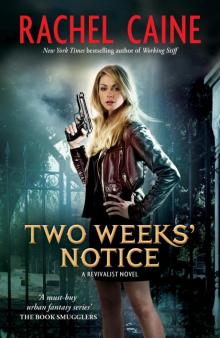 Two Weeks Notice
Two Weeks Notice Bitter Blood
Bitter Blood Carpe Corpus
Carpe Corpus Kiss of Death
Kiss of Death Ghost Town
Ghost Town Ill Wind
Ill Wind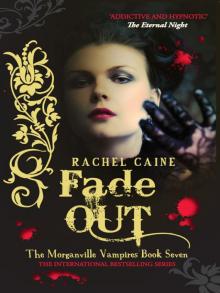 Fade Out
Fade Out Total Eclipse
Total Eclipse Honor Lost
Honor Lost Thin Air
Thin Air Black Corner
Black Corner Firestorm
Firestorm Bite Club
Bite Club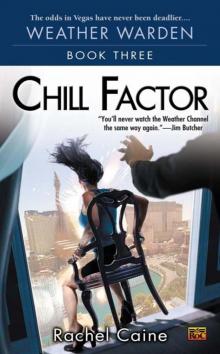 Chill Factor
Chill Factor Windfall
Windfall Oasis
Oasis Devils Bargain
Devils Bargain Terminated
Terminated Feast of Fools
Feast of Fools Lord of Misrule
Lord of Misrule Devils Due
Devils Due Ladies' Night
Ladies' Night Gale Force
Gale Force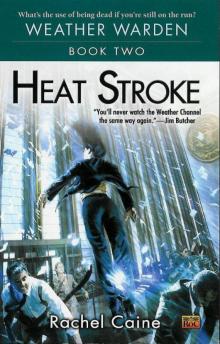 Heat Stroke
Heat Stroke Killman Creek
Killman Creek Sword and Pen
Sword and Pen Cape Storm
Cape Storm Unbroken
Unbroken Windfall tww-4
Windfall tww-4 Heartbreak Bay (Stillhouse Lake)
Heartbreak Bay (Stillhouse Lake) Daylighters: The Morganville Vampires
Daylighters: The Morganville Vampires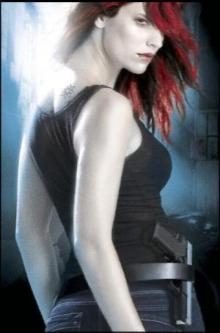 Duty
Duty Honor Bound
Honor Bound Unseen os-3
Unseen os-3 Firestorm tww-5
Firestorm tww-5 Blue Crush
Blue Crush Devil s Bargain
Devil s Bargain Prince of Shadows: A Novel of Romeo and Juliet
Prince of Shadows: A Novel of Romeo and Juliet Bite Club mv-10
Bite Club mv-10 Terminated tr-3
Terminated tr-3 The Morganville Vampires 14 - Fall of Night
The Morganville Vampires 14 - Fall of Night Bitter Blood tmv-13
Bitter Blood tmv-13 Falling for Grace
Falling for Grace The True Blood of Martyrs
The True Blood of Martyrs Fall of Night (The Morganville Vampires)
Fall of Night (The Morganville Vampires) Devil's Bargain rld-1
Devil's Bargain rld-1 The Morganville Vampires (Books 1-8)
The Morganville Vampires (Books 1-8)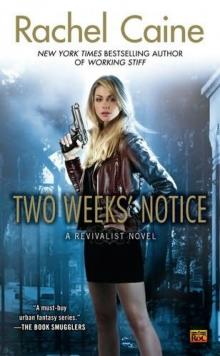 Two Weeks' Notice tr-2
Two Weeks' Notice tr-2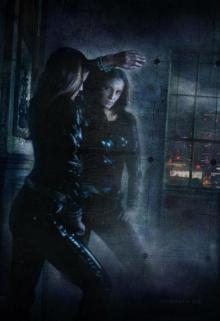 An Affinity for Blue
An Affinity for Blue Caine, Rachel-Short Stories
Caine, Rachel-Short Stories Kiss of Death tmv-8
Kiss of Death tmv-8 WITCHGRAVE
WITCHGRAVE Dark Rides
Dark Rides The Morganville Vampires
The Morganville Vampires Killman Creek (Stillhouse Lake Series Book 2)
Killman Creek (Stillhouse Lake Series Book 2) Midnight Bites
Midnight Bites Line of Sight
Line of Sight![Morganville Vampires [01] Glass Houses Read online](http://i1.bookreadfree.com/i1/03/30/morganville_vampires_01_glass_houses_preview.jpg) Morganville Vampires [01] Glass Houses
Morganville Vampires [01] Glass Houses Black Dawn tmv-12
Black Dawn tmv-12 Midnight at Mart ww-103
Midnight at Mart ww-103 Feast of Fools tmv-4
Feast of Fools tmv-4 Ill Wind tww-1
Ill Wind tww-1 Devil's Due rld-2
Devil's Due rld-2 Black Dawn: The Morganville Vampires
Black Dawn: The Morganville Vampires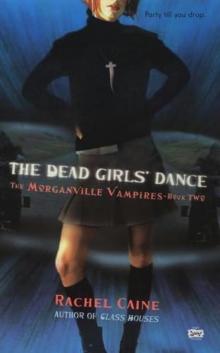 Dead Girls' Dance tmv-2
Dead Girls' Dance tmv-2 Minute Maids
Minute Maids Carpe Corpus tmv-6
Carpe Corpus tmv-6 Total Eclipse tww-9
Total Eclipse tww-9 Ghost Town mv-9
Ghost Town mv-9 Lord of Misrule tmv-5
Lord of Misrule tmv-5 Faith Like Wine
Faith Like Wine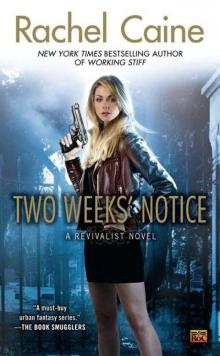 Two Weeks' Notice: A Revivalist Novel
Two Weeks' Notice: A Revivalist Novel Daylighters tmv-15
Daylighters tmv-15 Stamps, Vamps & Tramps (A Three Little Words Anthology)
Stamps, Vamps & Tramps (A Three Little Words Anthology) Unbroken os-4
Unbroken os-4 Unknown os-2
Unknown os-2 4 - Unbroken
4 - Unbroken Cape Storm tww-8
Cape Storm tww-8 Last Breath tmv-11
Last Breath tmv-11 Midnight Alley tmv-3
Midnight Alley tmv-3 Glass Houses tmv-1
Glass Houses tmv-1 Fade Out tmv-7
Fade Out tmv-7 Fall of Night tmv-14
Fall of Night tmv-14 Godfellas
Godfellas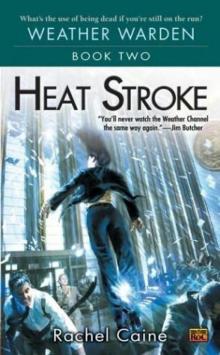 Heat Stroke ww-2
Heat Stroke ww-2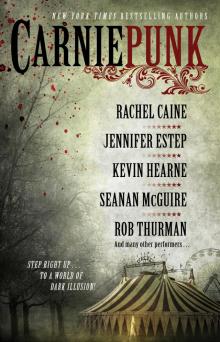 Carniepunk
Carniepunk Oasis ww-102
Oasis ww-102 Gale Force tww-7
Gale Force tww-7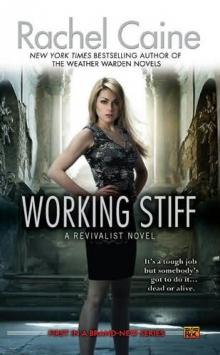 Working Stiff tr-1
Working Stiff tr-1